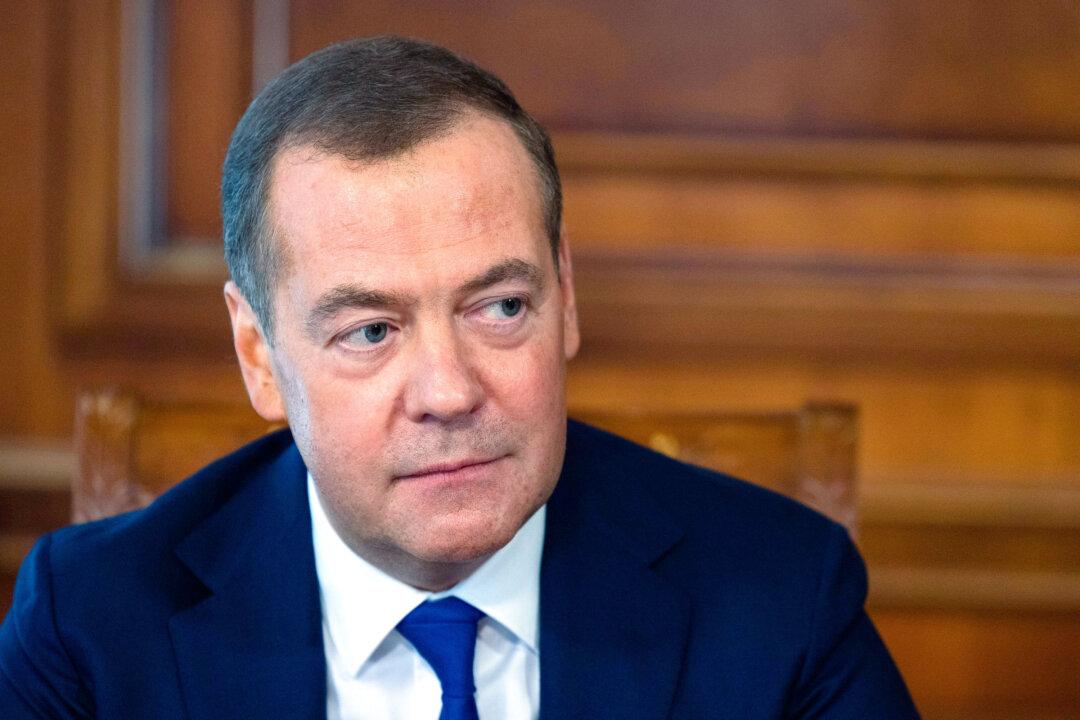Former Russian President Dmitry Medvedev told Russian media that Ukraine’s accession to NATO would be tantamount to a declaration of war and that the Kremlin is prepared to use its vast nuclear arsenal if pushed too far.
“From the very beginning, we have made it clear to NATO that Ukraine’s accession is not just a direct threat to Russia’s national interests. It is, in fact, a declaration of war, albeit with a delay,” Mr. Medvedev told the news outlet Argumenty i Fakty in an exclusive interview published on July 17, according to a translation of his remarks.





